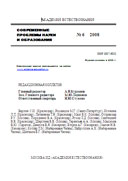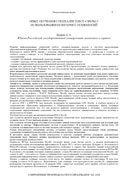M. Auezov South Kazakhstan State University, Shymkent, Kazakhstan.
The law is the invisible line of conduct and generally aims at ensuring peace and developement within a human society, at a given period. So, law and action are inextricably linked: the law authorises any action in accordance with practices established and respected by a specific human society. The law is not only an animator but also a regulator and a moderator of life in society. It also requires respect for the collective public order established by power, in the supposed interest of the entire population. The criminal disposition as part of the general criminal law, protects essential interests or values of human society; in other words, it protects juridical goods that are essential to the common good. These goods constitute the juridical object of the offense. In the expression of “juridical goods protected by criminal law”, it finds the notion of public order [1]. Criminal law, with its specific object to prevent by threat and if necessary, to suppress by the pronunciation of a sentence, the actions and omissions that may cause troubles to public order, aims according to one of the most classic definitions that can be given, the “maintenance of exterior order and the peaceful organization of relations between people”. Being understood as an object of a subjective right, the public order seems inseparable from its recognition by the law as a juridical good, although sometimes the first reaction of the French jurist is to reject this appellation. In fact, it seems clear that the criminal law aims to prevent public disorder and, if necessary, punish those who have caused it. Therefore the order relates to the conception of the defense of public interest, through the sanctions of criminal law in its objective meaning as the “all the legal rules established by the state in order to connect with the act which constitutes the offense, the penalty contained in the sanction”: 1), or in its jus puniendi subjective sense, known as the right of state to punish. Its role is to ensure respect of the nomenclature of human rights in society. In our opinion, this is the reason for the promotion of a criminal law model of public order in a contemporary democratic society. In the absence of public order, human relations, including those social, lose their social purpose. Public order is the ability to be in “perpetual” movement, which provides the salvation and allows the survival of any criminal justice system [2].
This concept includes those of good order, security, safety, public tranquility. Like all juridical goods, public order is the object affected by the unlawful act and the object protected by legal provisions. For this reason, the public order is in some way “the shield” of freedoms that in our opinion are the most fundamental. The preservation of social order, including public order, and at the same time the search of offenders, is the main task of anti-terrorism dispositions. Criminal law, especially the one against terrorism, is focused on the protection of the social order. Public order is not a juridical good that depends on the will of the legislator [3]. As a result, what above all is attained by the unlawful act is precisely this legislative promotion, which means that the offence appears principally as an attack against law and against the general will, which expresses the terms of law. It should be said that criminal law seems to have a comprehension of intangible public order: it always aims at the defence of general interest, not at that of the particular interests of this or that kind. Therefore, public order is a common agreement between every man to reduce “all their wills, by the rule of the majority, to a single will”, which has the power “to regulate the wills of all towards domestic peace and mutual help against the outside enemies”. Public order must be to the attention of all society because its aim is to assure and to promote public peace, which is one of the conditions of the happiness of the citizens.
List of recommended literature
1. Bekyashev K.A./ International public law. M, 2004
2.Dmitrieva G.K./- International private law. M, 2004.
3.Kuznetsov V.I./ International law. M, 2001.

